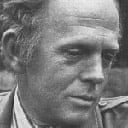Malcolm Williamson, who has died aged 71, was a composer of astonishing facility, and master of the Queen's music from 1975. A pianist and organist, he wrote in a bewildering array of styles - and was thus slated for indiscipline and lack of a sense of direction.
His failure to finish a piece on time for the Queen's silver jubilee in 1977 did not endear him to the establishment. In 1992, when Andrew Lloyd Webber was commissioned to write music for the Queen's 40th anniversary celebrations, Williamson's description of his work as "absolutely fatuous" led to accusations of bad grace and professional jealousy. Many were also outraged by his criticism of Benjamin Britten's work as "ephemeral", and his 1996 description of that composer as "an ambidextrous friend - a backstabber too".
Born in Sydney, Williamson received his earliest musical experiences in the Anglican church, where his father was a priest. He was educated at Barker College, in Hornsby, New South Wales. By the age of 12, he was studying at the Sydney Conservatorium under Sir Eugene Goossens. In addition to composition, he trained as a horn player, and became a highly proficient pianist.
In 1950, he travelled to London - and was impressed by what he found. The latest musical developments had not really penetrated Australia, and Williamson realised that, if he were to develop a serious career, he would have to settle in Europe.
He made London his permanent home in 1953, and pursued his musical studies with the splendid, if formidably uncompromising, Elisabeth Lutyens. Under her tuition, and that of Erwin Stein, he absorbed the intricacies of serial technique, blending it with a touch of personal modality. He also became fascinated with the music of Olivier Messiaen, so much so that he taught himself the organ in order to play the French master's magnificent, if fiendishly difficult, works.
Williamson's first published piece, a pair of motets for unaccompanied choir, appeared in 1954. Performances of his music were few and far between, so he worked for a firm of publishers and played the piano in a nightclub. He had converted to Roman Catholicism in 1952, and the spiritual outcome of this experience began to find its way into his music.
Those works that did get performed tended to be written for himself. He gave the premiere of his First Piano Sonata at the 1956 Aldeburgh festival, the same year that he introduced his Fons Amoris for organ at the Royal Festival Hall. In June 1957, a private performance by Sir Adrian Boult and the London Philharmonic Orchestra, of his First Symphony and the Santiago de Espada overture, helped to raise Williamson's profile, as did Clive Lythgoe's premiere of the First Piano Concerto at the 1958 Cheltenham festival.
By the end of the 1950s, his reputation was sufficiently established for him to pursue composition as a fulltime occupation, and the next decade was hugely productive. His much-acclaimed Symphony For Organ and Second Piano Concerto (both 1960) were followed by the Concerto For Organ And Orchestra (1961), the first of many Proms commissions, and the Vision Of Christ-Phoenix (1961), an organ solo performed by the composer to celebrate the consecration of Coventry cathedral. The Symphony For Voices (1962), a massive five-movement piece for solo contralto and unaccompanied chorus, also aroused much interest.
Williamson's first opera, a version of the Graham Greene novel, Our Man In Havana, was a critical success at its Sadler's Wells premiere in 1963, as was his second essay in the medium, English Eccentrics, which appeared at the 1964 Aldeburgh festival. The Violin Concerto, premiered by Yehudi Men- uhin at the 1965 Bath festival, was also well received. But then the dissenting voices began to be heard; Williamson, it was said, was too glib, too populist, too uncritical, and too diffuse. While a couple of children's operas, Julius Caesar Jones (1966) and Dunstan And The Devil (1967), got away relatively unscathed, his later theatrical essays aroused the critics' wrath.
What seemed to especially annoy people were his "cassations", essentially mini-operas designed for audience participation. One of them, The Stone Wall, caused quite a stir at the Last Night of the Proms in 1971. "Trivial", "superficial" and "simplistic" were just some of the terms used to describe what were fundamentally inoffensive pieces designed, not just for entertainment, but for educational purposes as well. Williamson's increasing body of church music was also criticised as "vacuous", "shallow" and "insincere".
It was thus, perhaps, not surprising that eyebrows were raised in some quarters, when, in October 1975, Williamson was appointed master of the Queen's music. The Australian was not seen as the obvious successor to the ultra-English Sir Arthur Bliss, who had held the post since 1953.
And yet, the broader musical public - and many leading composers - seemed quite happy with Williamson and his music. On the occasion of his 50th birthday, it was claimed that he was "the most commissioned composer of his generation". Even a brief glance at his catalogue of works reveals an astonishingly fertile mind, with pieces covering seemingly every genre, including seven symphonies, a multitude of vocal and choral compositions, a respectable body of chamber music, items for educational purposes, stage works, and pieces for brass ensemble and organ.
Williamson remained, however, essentially Australian. "Most of my music is Australian," he once said. "Not the bush or the deserts, but the brashness of the cities. The sort of brashness that makes Australians go through life pushing doors marked pull."
He was awarded the CBE in 1976, and made an officer of the Order of Australia in 1987 for his services to music and the mentally handicapped.
He is survived by his wife Dolores, whom he married in 1960, and their son and two daughters.
· Malcolm Benjamin Graham Christopher Williamson, composer, born November 21 1931; died March 2 2003
